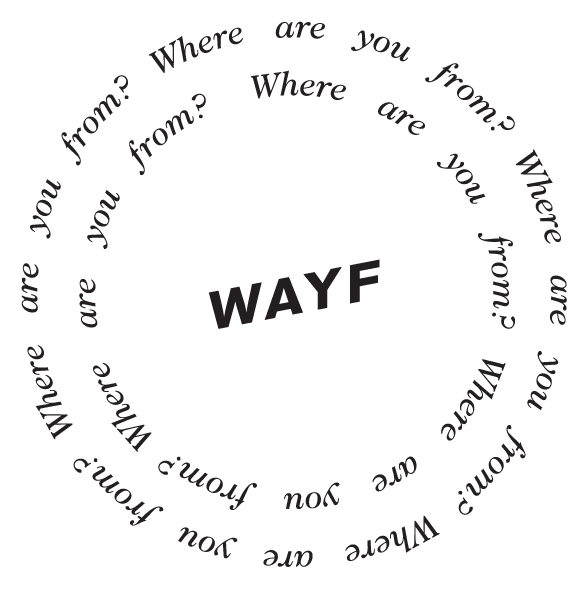Less about culture more about coping
Hannah Emeagi
From as early as I can remember, we had family gatherings at Lolo and Lola’s. I was always surrounded by Filipino food, traditions and language, but as soon as I was out in the world and socialising for the first time, I realised I wasn’t like all the other Asian kids. Those feelings of ambiguity set me on a journey to discover what it means to be Nigerian, or more broadly, what it means to be black.
Growing up, dad shared some things about his culture, but not much. I knew about his brothers and the different foods his mum would cook, and especially how strict things were and their attitude towards image. Our family in Nigeria were of a certain class. Dad’s oldest brother, Uncle Donatas, was a priest and their dad was a Catholic knight. They were very respected in society and they had that image to uphold. So dad was always reminding me how important it is to be presentable and take pride in the way you look.
He would also never wear generic brands or shop at places like Target. And he’d get mad if I had my shoes untied, or if I looked messy. At first I thought this was just what it meant to be a Nigerian man. But Dad would also tell me a lot of stories about racism. One time he was shopping for linen pants and the person in the store approached him and said ‘I don’t think you can afford anything here,’ so Dad bought two or three pairs ... I started to wonder if these things were purely cultural or if they were also a way of coping with racism, and giving people who are constantly picking at you less things to pick on.
Now there is part of me that understands the mentality he had: I find it empowering to look good and be presentable. But at the same time, I wish he could have explained why the world is the way it is. Despite the things he did share, he was never open to me asking questions—that was considered defiance. There were a lot of things that I just had to accept, and I never understood how they applied to me and my blackness, and of course me as a black woman.
Recently, I’ve been reflecting on how things might have been different if I’d had more black women in my life. My mum was definitely a female role model. But there wasn’t an understanding of what black women do and what they look like, so most of my life I’ve felt out of place. I felt like a boy—I’m intense and loud—and that doesn’t relate to a lot of other women and girls. It wasn’t until I started going to events with other African people, and getting into the work that I do now, as a support worker for a family full of African women, that my life started to change. Even though these women aren’t Nigerian, they are so much like me. Their bodies look like mine. We talk about our hair and do the same styles. They’re proud to be bold with their clothing and jewellery—all these things that I have had the urge to do in some sort of instinctual way but wasn’t sure about.
So connecting that back to my mother—as well as not being black, she has a different racial experience all together. Because she grew up here, there were a lot of inherently racist things that are part of Australian culture that she didn’t realise were racist. We had a bunch of gollywog toys that she used to put around the house and one day I was like, ‘Mum, do you know what this represents? Do you know this is offensive?’ And she was offended. She said, ‘those are my things from when I was little—you don’t get it.’ My response to that was, ‘I get what you’re saying, but do you understand that your children are black? We have a different racial experience to you.’ With some things she would think about it and realise. But I also understand that my mum has experienced different kinds of racism. We connect on certain things but we’re also very different.
As I’m older now, I can appreciate that not everyone is going to understand me and it’s more important that people listen to you and try to be empathetic, and Mum knows how to do that, which is really nice.
